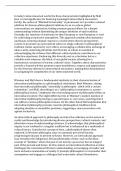In today's interconnected world, the three characteristics highlighted by Mall
bear crucial significance for fostering meaningful intercultural encounters.
Firstly, the notion of "Minimal Universality" is paramount as it provides a shared
platform for diverse philosophical traditions. In an era where global
conversations are imperative, finding common ground allows for a deeper
understanding without diminishing the unique identities of each tradition.
Secondly, the rejection of centrisms, be they European or non-European, is vital
for cultivating an inclusive atmosphere. This approach combats discrimination
and biases, fostering mutual respect in a world where diverse perspectives
coexist. It promotes an environment where no single cultural or philosophical
tradition claims superiority over others, encouraging a collaborative exchange of
ideas. Lastly, endorsing pluralism and diversity as values is essential in
acknowledging the richness that different cultural patterns contribute to our
collective experience. Embracing this diversity not as a deviation but as a
valuable asset enhances the fabric of our global society, allowing for a
harmonious coexistence of various cultural voices. Together, these characteristics
provide a framework that promotes open-mindedness, respect, and appreciation
for the diversity inherent in intercultural encounters, making them foundational
in navigating the complexities of our interconnected world.
Wimmer and Mall share a fundamental similarity in their characterization of
intercultural philosophy as a philosophical orientation. Both Wimmer, stating
that intercultural philosophy "essentially is philosophy - albeit with a certain
orientation," and Mall, describing it as a "philosophical orientation or a proto-
philosophical stance," emphasize the overarching nature of philosophy within an
intercultural context. The slight difference lies in Wimmer's explicit mention of
intercultural philosophy having no special topics or core areas, asserting that it
can address various philosophical issues. On the other hand, Mall emphasizes that
intercultural philosophy prevents concrete philosophical traditions from
adopting absolute or monolithic positions, suggesting a more preventive role
against exclusivity.
An intercultural approach to philosophy enriches the reflection on the nature of
reality and knowledge by introducing diverse perspectives, cultural contexts, and
alternative ways of understanding existence. It acknowledges that philosophical
inquiry is not confined to a singular tradition but is influenced by a multitude of
cultural lenses. Consider the concept of time, a philosophical theme often
explored. In Western philosophy, time is commonly perceived linearly,
progressing from past to present to future. However, an intercultural approach
may introduce the indigenous African philosophy of time, such as the Akan
concept of "Sankofa," where the past is not merely a precursor but an integral
part of the present and future. In this context, an intercultural reflection on time
challenges the conventional Western understanding, encouraging a broader and
more inclusive examination of reality. It prompts philosophers to reconsider their
assumptions and engage in a dialogue that transcends cultural boundaries,





